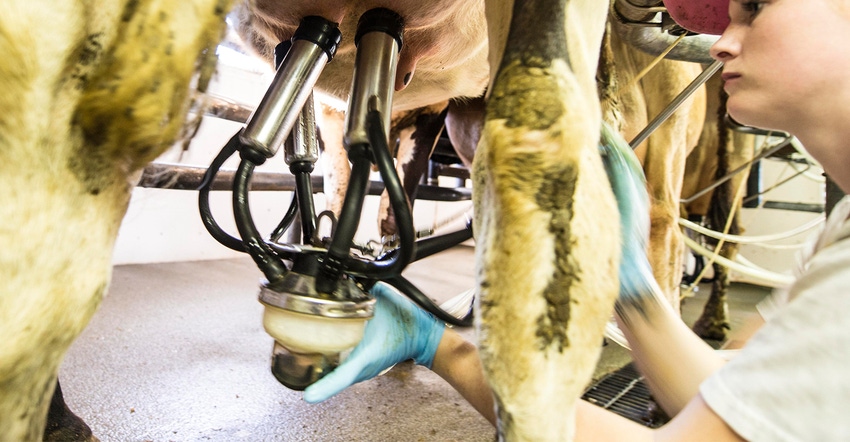March 15, 2018

Transporting food products from farm to processor is big business. And there’s often concern about maintaining the quality of those products during transportation. For the dairy industry, there was concern that raw-milk quality could be compromised when tanker trucks sit empty and uncleaned, with hours between loads over the course of a day.
A new study from Oregon State University should assuage those fears. Researchers found that milk quality isn’t compromised by the practice. The findings were published recently in the Journal of Dairy Science and offer guidance to the U.S. Food and Drug Administration as it reviews its Grade A Pasteurized Milk Ordinance.
FDA sets a minimum standard and requirements for regulating the production, processing and packaging of Grade A milk. Part of that process allows tanker trucks to be used repeatedly over 24 hours before mandatory cleaning. But there’s no specification for how long a tanker can sit empty between loads.
OSU has long studied raw-milk quality issues and the commercial milk supply chain. In 2015, it published results of a study showing that sanitation practices and policies for long-distance milk hauling — called “clean in place” — mitigated any measurable effect on raw-milk quality.
In this latest study, Lisbeth Goddik, professor and OSU Extension Service specialist in dairy processing, along with microbiologist Joy Waite-Cusic and graduate student Eva Kuhn, turned her focus to tanker truck idle times during the 24-hour cycle.
Goddik explains that the trucks go out up to 10 times each day and often sit empty between loads. “As soon as the raw milk is emptied, air comes into the tank from the surroundings, and the truck immediately begins warming up,” she adds. The researchers believed that this would create a buildup of bacteria on the surface inside the truck’s tank.
The researchers note that all milk is safe because it is pasteurized. The study also showed current storage and cleaning practices are sufficient to ensure quality. Pasteurization eliminates bacteria, but some enzymes that survive the pasteurization process can impact milk quality by producing off-tasting milk.
Looking at the study
In their pilot study, the researchers used 5-gallon milk cans to create a “worst-case hauling scenario.” They left the cans empty and dirty for extended periods between loads, especially in warm weather. They then collected and tested milk samples to measure the level of bacteria linked to raw-milk quality. The results of the pilot study showed that extended intervals and idle-time intervals could contribute to compromised raw-milk quality.
Then they scaled up the study, partnering with a major Pacific Northwest dairy cooperative to follow a commercial tanker that initially hauled milk from a farm known to have poorer-quality raw milk. The tanker then stood idle and uncleaned before collecting milk from a farm known to have superior-quality raw milk.
The focus was to determine if the higher-quality raw milk in the second load was contaminated following pickup by the uncleaned tanker. Kuhn collected milk samples from each farm’s bulk tank and from the tanker before unloading. These samples in the commercial study showed that extended idle times of six hours or less — the industry standard — didn’t measurably compromise milk quality.
Waite-Cusic says that the current industry sanitation strategies are working.
From their work, the team also published a second study in the Journal of Dairy Science focused on overall industry milk hauling sanitation practices in the Western United States that found, among other things, that manual cleaning procedures appear to be a major weakness in hauling practices.
Goddik says that automated cleaning procedures work, but that every time there is a human involved, “Things don’t always go as they should. We observed that some workers don’t clean as well as others. That needs more attention.”
The idle-tank study was funded by Dairy Management Inc.
Source: Oregon State University
You May Also Like




